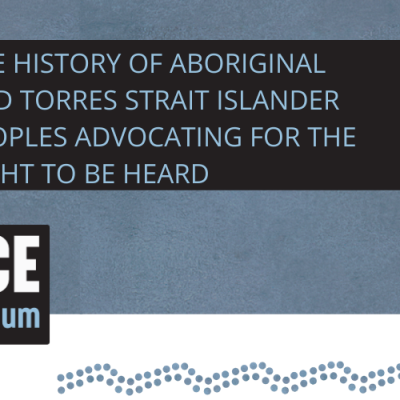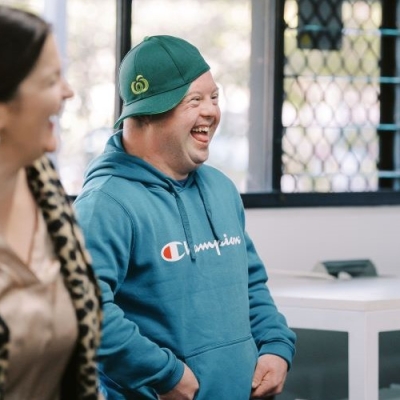Refine results
-
Legal14 December 2012Webpage
Submission: Human Rights and Good Governance Education
The Human Rights and Equal Opportunity Commission (HREOC) which was established in 1986 by the Federal Parliament as successor to the 1981 Human Rights Commission is an independent statutory authority whose functions are to monitor, protect and promote human rights in Australia. The Commission has played a key role in the education of civil society in regard to these rights. -
Children's Rights6 February 2020Media Release
Children’s Commissioner to Launch Final Report
Australia’s first Children’s Commissioner, Megan Mitchell will on Monday launch her final report – one of the most comprehensive assessments of children’s rights ever produced in Australia. The report makes clear that the mental health of Australian children is not being cared for sufficiently and that Governments must do more to ensure children’s wellbeing. Commissioner Mitchell said: “Not… -
Sex Discrimination5 March 2019Media Release
Gender equality on the golf course
New guidelines for Australian golf clubs are being rolled out today in a bid to stop sex discrimination and increase female participation, which has been sliding over the past 50 years. Golf Australia and the Australian Human Rights Commission found that while clubs offer women and girls opportunities to play and compete, frequently men were given greater opportunities purely because of… -
Business and Human Rights22 December 2021Media Release
Australian and New Zealand Human Rights Commissions and FIFA publish Human Rights Risk Assessment ahead of the FIFA Women’s World Cup 2023™
The Australian Human Rights Commission, the New Zealand Human Rights Commission along with FIFA have today published a Human Rights Risk Assessment for the next FIFA Women's World Cup, to be held in Australia and Aotearoa New Zealand in 2023. The assessment examined the potential human rights impact of the FIFA Women’s World Cup 2023™ on players, spectators, workers and local communities in … -
Race Discrimination6 December 2022Media Release
New report lays foundations for Australia’s first National Anti-Racism Framework
The report identifies data collection and education on racism, and cultural safety as key themes. It also identifies media regulation, standards, and legal protections as priority areas for action. -
Sex Discrimination2 November 2022Media Release
Support for workplaces to prevent and address sexual harassment
The Respect@Work Council, chaired by National Sex Discrimination Commissioner Kate Jenkins, has launched a new website that will help employers prevent and respond to sexual harassment, and will support them to create gender inclusive, safe, and respectful workplaces. -
Commission – General14 December 2012Webpage
International Covenant on Civil and Political Rights - Human rights at your fingertips
Learn about the principles of human rights, which include the right to self-determination and the right to political, economic and social development. -
Commission – General14 December 2012Webpage
Convention on the Elimination of All Forms of Discrimination Against Women - Human rights at your fingertips - Human rights at your fingertips
On 18 December 1979, the Convention on the Elimination of All Forms of Discrimination against Women was adopted by the United Nations General Assembly. It entered into force as an international treaty on 3 September 1981 after the twentieth country had ratified it. By the tenth anniversary of the Convention in 1989, almost one hundred nations have agreed to be bound by its provisions. -
Rights and Freedoms21 April 2020Opinion piece
Resisting extremism in a pandemic
When the COVID-19 pandemic spread to this big island of ours, our leaders made a momentous decision: they decided to save as many human lives as possible. This was the right decision. It shows we as a country care about human life above all else. But now we face an even harder question: how to save lives while preventing economic collapse and staying true to our democratic values? In order… -
Commission – General3 June 2020E-bulletin (Monthly)
Community update: COVID-19 (June 2020)
Commission News June 2020 Commissioner update COVID-19 Dear friends, The last few weeks have seen a gradual return to some of our pre-pandemic freedoms in many parts of Australia. While physical distancing remains a vital element to maintaining low infection rates, it is clear that we welcome the opportunity to visit loved ones, travel and socialise. The Lucky Country, a term used favourably… -
Aboriginal and Torres Strait Islander Social Justice2 August 2023Webpage

The history of Aboriginal and Torres Strait Islander peoples advocating for the right to be heard
There is a long history of First Nations people advocating for the right to representation and participation in decisions that affect them. The events listed are a selection of moments in history when Aboriginal and Torres Strait Islander peoples have taken action to call for large-scale change by Australian governments to realise their Indigenous rights, demonstrating the history leading to the… -
14 December 2012Book page
4. Australia's Human Rights Obligations
The purpose of this chapter is to explain the relevance of international human rights law to children in Australia's immigration detention centres and to provide a quick reference point on the fundamental human rights principles that have influenced the approach of this Inquiry. This chapter also explains the role of United Nations (UN) guidelines in the Inquiry's analysis of Australia's human… -
14 December 2012Book page
Social Justice Report 2005 :
The most comprehensive statement of this right is Article 12 of the International Covenant on Economic, Social and Cultural Rights (ICESCR).1 Article 12 states: -
Aboriginal and Torres Strait Islander Social Justice9 July 2021Speech
LISTEN. THINK. TRUST. ACT. DIFFERENTLY. Intersectional Movements and a Gender Equal and Just Futures
Panel: Think: Associate Professor Chelsea Watego Trust: Aunty Jackie Huggins, Co-chair Treaty Advancement Committee Act: June Oscar, Social Justice Commissioner, Australian Human Rights Commission I want to acknowledge the lands we all stand on—all our elders past, present and emerging, wherever we are beaming in from today. Good morning everyone. I am really happy to be here and… -
Asylum Seekers and Refugees7 October 2022Media Release
Joint Statement on the use of hotel APODs
This Statement provides guidance on the short-term use of hotel APODs, including access to open‑air exercise, access to meaningful programs and activities, and the need to ensure medical and welfare services are of the same standard as those provided in other immigration detention facilities. -
Legal18 February 2020Webpage
Submission policy
Any public contribution to an inquiry is called a submission. Submissions are actively sought by the Commission from a broad cross section of the community, as well as those with a special interest in particular inquiries. -
14 December 2012Book page
HREOC Annual Report 2003-2004 : Chapter 5: Legal Services
The primary responsibilities of the Legal Section are to assist the President or their delegate in the preparation of notices and reports under the Human Rights and Equal Opportunity Commission Act 1986 (Cth); to act as counsel or instructing solicitor for the Commission in interventions and amicus curiae matters; to assist the Commission in work arising from legislation or bills raising human… -
Sex Discrimination4 May 2021Speech
Launch of Change the Routine: Report on Review into Gymnastics
The Australian Human Rights Commission’s review of gymnastics in Australia highlights misconduct, abuse, and safety concerns. -
Disability Rights6 May 2024Webpage

IncludeAbility Evaluation
Explore the evaluation by the Centre for Social Impact at Swinburne University of the IncludeAbility Project 2020-2023 to assess its effectiveness -
Rights and Freedoms14 December 2012Publication
Implementing the Optional Protocol to the Convention against Torture : Options for Australia
A report to the Australian Human Rights Commission by Professors Richard Harding and Neil Morgan (Centre for Law and Public Policy, The University of Western Australia)
